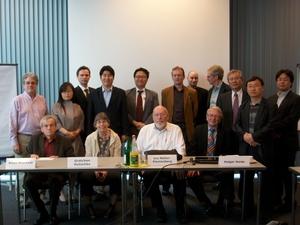Third International Conference of the Korea Democracy Foundation (KDF) and the Institute of Korean Studies (Freie Universität Berlin)
News vom 27.06.2011
„Students and Student Movements as Actors in the Development of Civil Society in South Korea and Germany“
2011 IKS-KDF-Conference, June 21.-24. 2011, Seminaris Hotel Dahlem (FU Berlin), Berlin, Germany
This year the Korea Democracy Foundation (KDF) and the Institute of Korean Studies (IKS) at Freie Universität Berlin for the third time held a joint conference on civil society. After our conferences “Challenge for Civil Society” in 2009 and “Location of Civil Society” in 2010 this year we put our focus on the actors (or activists), who actually gave new energy to civil society. It is beyond doubt that it was the students in Europe as well as in South Korea who played a decisive role during the qualitative transformation of civil society – the generation of 1968 in Europe and the so-called 386-generation in South Korea. The most important impact that the students - who had fought authoritarianism and dictatorship - had on the societies of Europe in the 1970s and the society of South Korea after 1987 was that they provided the basis for civil society to be enabled to become popularized. In this way student movements of Germany/Europe and South Korea became the roots of civil movements.
In this year´s conference of different angles we contemplated on the process of how civil movements were qualitatively enhanced by the student movements in Germany and South Korea out. This process is not limited to the political influence of the student movements only, but spanned over widely and encompassed the whole of society and everyday life. Also, we scrutinized contents and processes of student movements occurring in the two divided nations Germany and Korea, and dealt with the question of what impact they had (or will have) on unification in the long run. Moreover, the workshop dealt with the issue of how student movements were carried on in times of “globalization”, and what role the main actors of 1968 and 1987 play in today’s civil societies.

